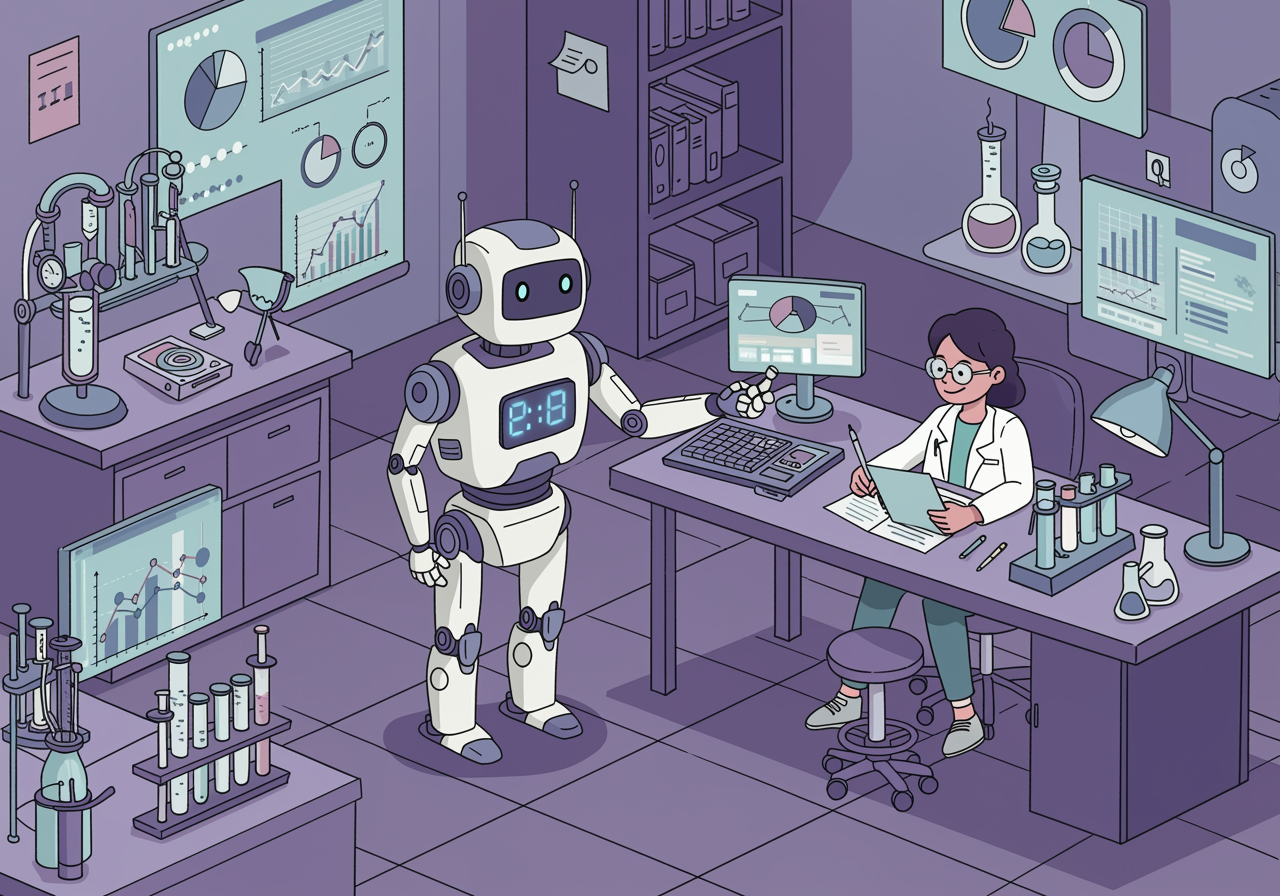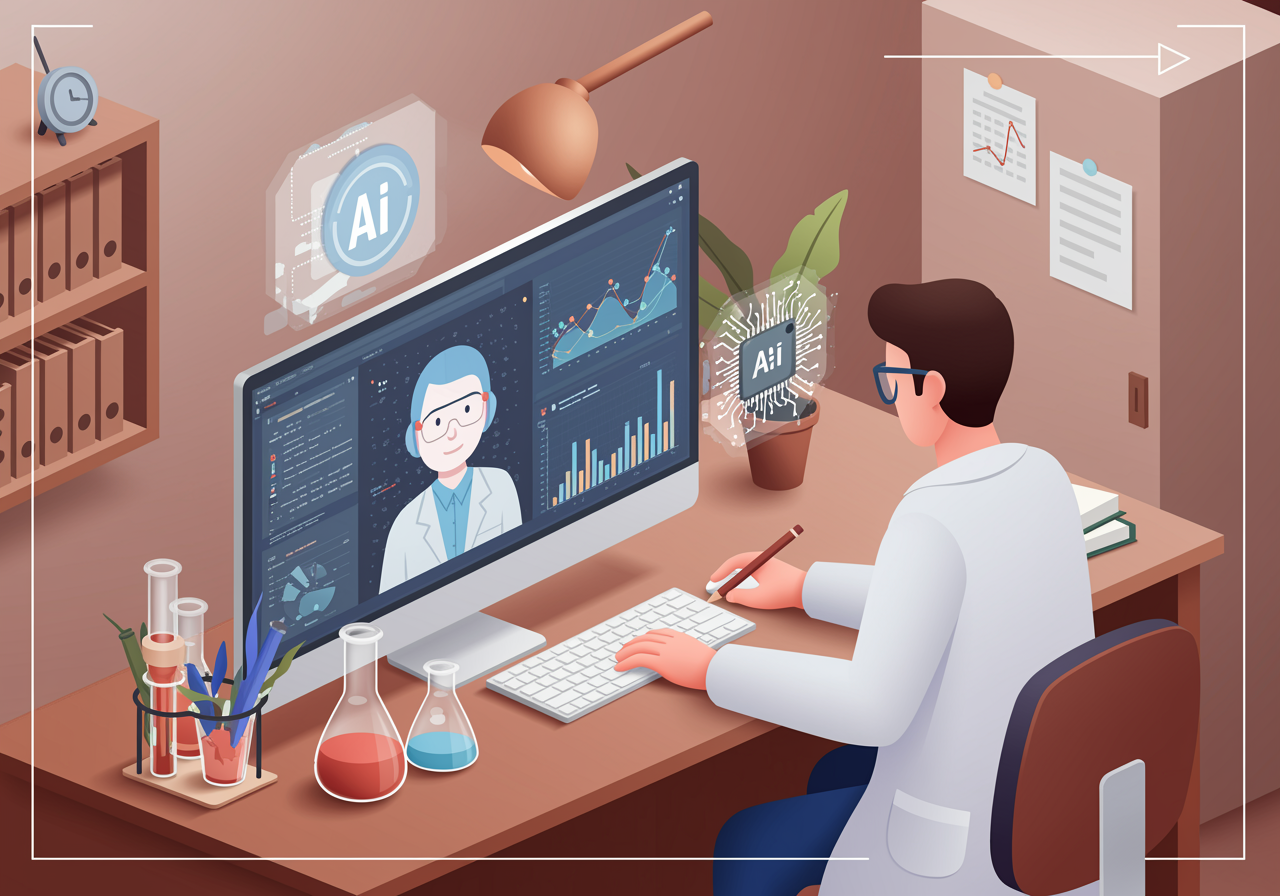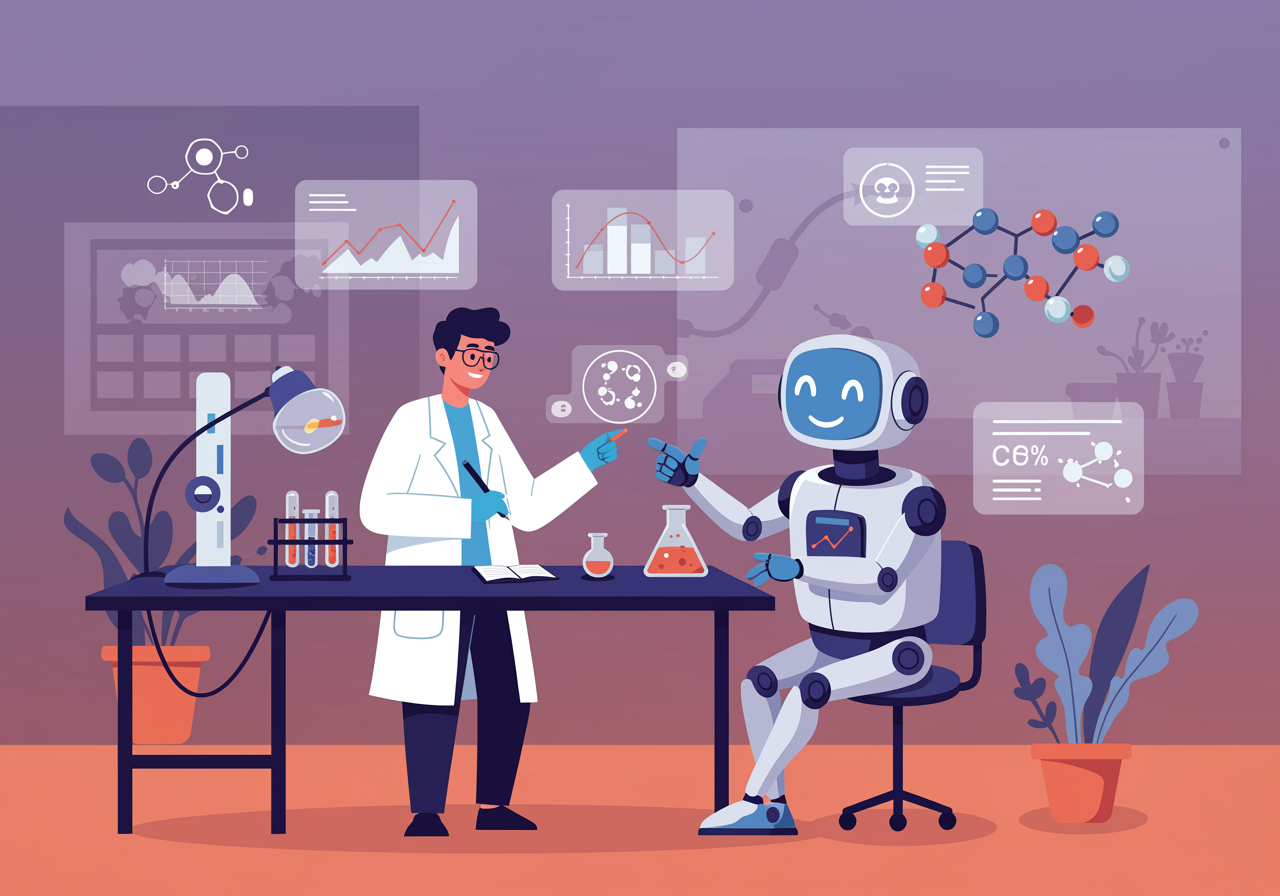AI: The Ultimate Science Sidekick

Discover how artificial intelligence is becoming science’s newest superhero partner
Explore how AI is revolutionizing scientific discovery and what this means for the future of human knowledge with your curious teen.
Overview
Imagine having a research assistant who never gets tired, can read millions of scientific papers in seconds, and spots patterns that would take humans years to find. That's what AI is becoming for scientists today! This topic helps kids understand how technology is speeding up discoveries that could solve problems like climate change, cure diseases, and even help us explore space. It's not about robots replacing scientists—it's about super-smart tools helping humans ask better questions and find answers faster than ever before.

Understand in 30 Seconds
Get up to speed quickly
- AI = Super-Fast Pattern Detective: AI can look at huge amounts of data and find hidden patterns that humans might miss, like spotting which combinations of medicines work best together.
- Scientists Still Drive the Car: AI is like a powerful GPS system—it helps scientists navigate faster, but humans still decide where to go and what questions to ask.
- Speed Boost for Discovery: What used to take years of research can now happen in months or weeks, meaning we might find cures and solutions to big problems much faster.
- New Types of Questions: AI helps scientists ask questions they never thought of before by showing connections between things that seemed totally unrelated.
Real Life Scenario
Situations you can relate to
Think about trying to solve a 10,000-piece puzzle, but you can only work on it for a few hours each day. Now imagine you had a friend who could work on it 24/7, never got tired, and had perfect memory of every piece they'd already tried. That's what AI is like for scientists! For example, when researchers were racing to understand COVID-19, AI helped them analyze millions of research papers and identify promising treatments in weeks instead of years. The AI didn't replace the scientists—it just gave them superpowers to process information faster. Have you ever used autocomplete while texting? AI in science works similarly, but instead of predicting your next word, it predicts which experiments might lead to breakthroughs!

Role Play
Spark a conversation with “what if” scenarios
What if you were a scientist studying climate change with an AI assistant?
- Role play: Pretend the parent is the AI and the child is the scientist. The 'AI' rapidly lists different data points (temperature, ice melting, animal migration) while the 'scientist' tries to connect the dots and form hypotheses.
What if AI discovered a pattern in space that no human had ever noticed?
- Role play: Look at a star chart or constellation map together. Have the child play the AI and point out 'unusual patterns' while the parent plays the astronomer deciding what to investigate next.
What if you were developing a new medicine with AI help?
- Role play: Use different colored candies or blocks to represent molecules. The 'AI' (child) suggests combinations while the 'scientist' (parent) tests whether they would work together safely.
FAQs
Frequently asked questions people want to know
Will AI replace human scientists?
No way! AI is more like a super-powered tool that helps scientists work faster and smarter. Scientists still need to ask the right questions, design experiments, and make sure discoveries are safe and helpful.
How does AI actually 'discover' things?
AI doesn't discover things the way humans do. Instead, it finds patterns in massive amounts of data that would take humans forever to spot, then scientists investigate those patterns to make real discoveries.
Is AI always right about science?
Definitely not! AI makes mistakes and can even be biased based on the data it learns from. That's why human scientists always double-check AI suggestions through real experiments and peer review.
Examples in the Wild
See how this works day to day
- DeepMind's AlphaFold AI predicted the 3D structure of over 200 million proteins, solving a 50-year-old biology puzzle (Nature Journal, 2022)
- AI helped discover new antibiotics by analyzing thousands of chemical compounds in just days (MIT News, 2023)
- Machine learning identified new exoplanets in data from the Kepler Space Telescope that humans had missed (NASA, 2023)
- AI models helped predict COVID-19 protein structures, speeding up vaccine development (Science Magazine, 2021)
In Summary
What you should know before you start
- AI acts like a super-smart research assistant that never gets tired and can process huge amounts of information quickly
- Scientists use AI to find patterns and connections they might miss, but humans still guide the research and ask the important questions
- AI is already helping discover new medicines, identify planets, and solve complex biological puzzles much faster than before
- The future of science will likely involve humans and AI working together as a team, not AI replacing human curiosity and creativity
Pro-tip for Parents
You got this!
If your teen seems worried about AI taking over science, remind them that AI is just a tool—like a calculator for math or a microscope for biology. The most important part of science is human curiosity and asking 'what if?' questions. Encourage them to think about what scientific mysteries they'd want to solve and how an AI assistant might help them get there faster. The goal isn't to make them fear technology, but to see themselves as future scientists who could use these powerful tools.

Keep an Eye Out For
Find these examples in everyday life
- News about AI discovering new medicines or treatments for diseases
- Stories about AI helping with climate change research or space exploration
- Announcements of AI-assisted scientific breakthroughs in areas your teen is interested in (like sports science, gaming technology, or environmental research)
Explore Beyond
Look up these related research topics
- How machine learning algorithms actually work and learn from data
- The ethics of using AI in scientific research and decision-making
- Career paths that combine AI technology with scientific research